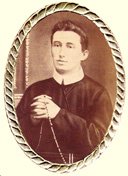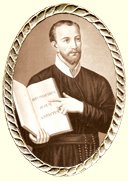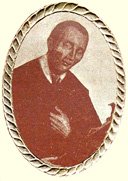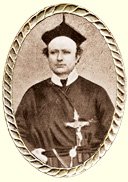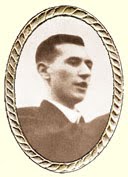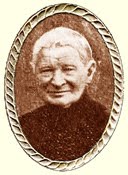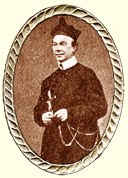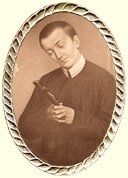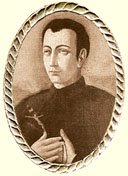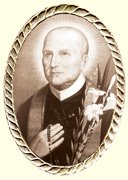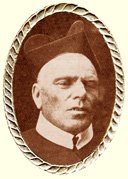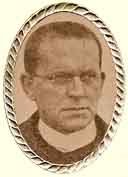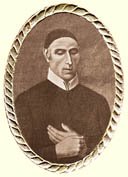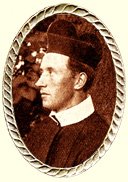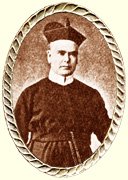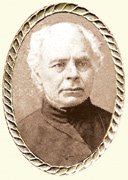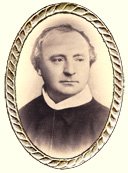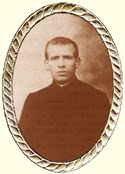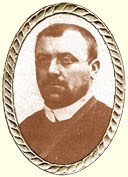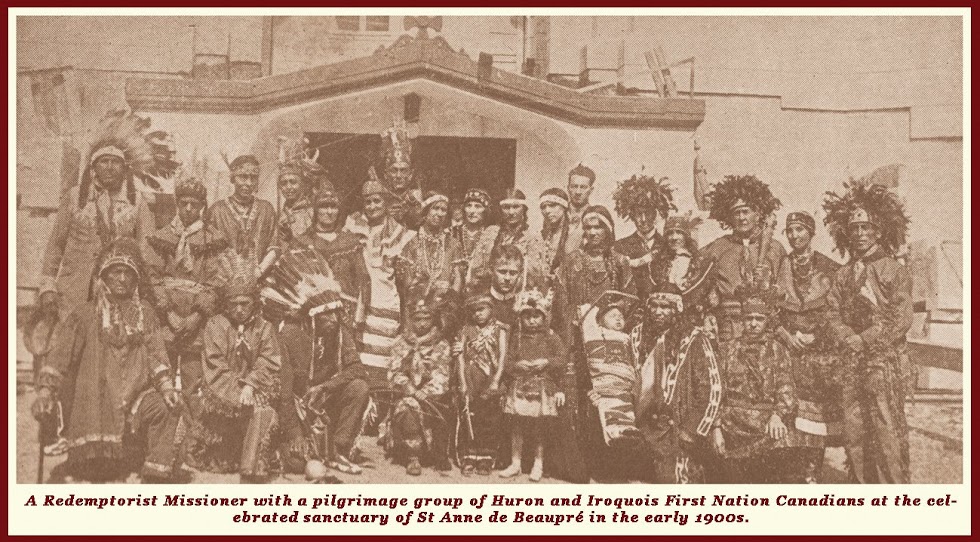 by Rev. Fr Oliver. R. Vassall, C.SS.R.
by Rev. Fr Oliver. R. Vassall, C.SS.R.
Chapter 1
From his birth in 1751 until his ordination in 1785
“The Lamp, despised in the thoughts of the rich, is made ready for the time appointed.” Job xii. 5.
The Blessed Clement Mary Hofbauer, like St. John Berchmans, St. Vincent de Paul, St. Benedict Labré and so many of God’s greatest Saints, was the son of poor but respectable parents. They were thoroughly God-fearing people, and possessed the priceless treasure of the true Faith in all its purity — a treasure, which they bequeathed to their sons and daughters, as something far more precious than all the gold and silver that this world can bestow on its most favoured children.
If then Father Clement was accustomed, in his later life, to say that with all his faults, he was a Catholic from the crown of his head to the soles of his feet — “Sum Catholicus totus quantus,” — he would also add that great indeed was the debt which he owed to his parents for the truly christian training given him by them; while, like St. Augustine and St. Alphonsus, he loved to dwell with especial affection on the memory of his mother, whose one anxiety it had been to instil into his young heart and mind, even from the first dawn of reason, the doctrines and principles of holy religion.
Our Saint was the ninth of twelve children. He was born on the 26th of December, St. John’s Eve, in the year 1751 at Tasswitz in Moravia, whither his father had migrated from the town of Budweis, changing at the time his Sclavonic name of Dworzak into its German equivalent of Hofbauer. It was not nineteen years since St. Alphonsus Liguori had laid the foundations of the Congregation of the Most Holy Redeemer in the Grotto of Scala, and but two years had passed since the great Pope Benedict XIV had approved the Rule of the new Italian Institute, of which the little Moravian peasant-child was, in the designs of Divine Providence, destined to be the Father and Propagator in the countries north of the Alps.
According to the excellent custom of his people, he was baptized on the very day of his birth, receiving at the Font the name of John in honour of the Beloved Disciple. It was not until the year 1782 that he assumed at Tivoli the name of Clement, in order to place himself under the special protection of the glorious Martyr St. Clement of Ancyra. As, however, it is by this latter name that he is always known, we shall venture to anticipate matters somewhat, and shall call him Clement even from the beginning of our narrative.
St. Alphonsus calls the love of Our Lord Jesus Christ “the Devotion of Devotions,” and indeed not only do all the practices of Catholic piety terminate in the supreme love of God, but also this is the one great end, to the attainment of which all that occurs in the life of a Christian should ever be subordinated and faithfully referred as a divinely appointed means.
The Blessed Clement Hofbauer was but a child when he learned this lesson in a practical way. He was not more than six years of age when he lost his father. We are told that the widowed mother at once took her little boy by the hand and led him to a Crucifix; then pointing to the Image of the Son of God dying in agony for the sake of sinful men, this brave woman said to her son: “See! He is now your father. Look to it that you walk on the path, which is pleasing to Him.” These words remained for all time engraved deep in the very recesses of Clement’s heart. He never forgot them, and from that hour to his latest breath his one desire was to serve and love his Crucified Lord with all the powers of his soul. The love of Jesus Christ became to him, as to St. Alphonsus and to all the Saints, a passion which took possession of his whole nature, so that he might have truly said with the Apostle, that for him “to live was Christ,” and that “Christ lived in him.”
This absorbing love for the Most Holy Redeemer brought with it an intense love for Her, whom the child well knew to be the nearest and dearest to Our Divine Lord of all His creatures, the Blessed and Immaculate Virgin Mother, whom he knew also to be his own true Mother in right of his brotherhood with God made Man. He was likewise blessed from his earliest years with a special love for those in want and misery, since he had been taught that Jesus had proclaimed all such His visible representatives upon this earth. Devotion to Mary and to the poor were to distinguish the Blessed Clement to the day of his death.
It is interesting to learn that the Saint, who was in the days of his Priesthood to use the Holy Rosary as the great means of obtaining graces, and especially conversions from Almighty God, the Saint, who was a second Dominic in the zeal with which he propagated this beautiful Devotion amongst the Faithful, loved his beads even as a little boy and was always saying them. In this indeed the child was father to the man.
There was yet another thing in which he was, while yet quite young, to show by what spirit he should be animated when arrived at a man’s estate. Great was his anxiety, even from his tenderest years to practice a virtue, of which the best children usually know but little — the virtue of corporal mortification. His mother fostered this desire by every means in her power — and yet she did so most prudently. Through fear lest it might otherwise lead to pride, she insisted that Clement should fast only as a reward at the end of any week during which he had been particularly good. Accordingly the poor boy used to do his utmost to keep in check the impetuosity of character, that was his great natural defect, in order to be allowed to go without his breakfast on Saturday. When he had once obtained the coveted permission, he knew how to show at the same time his practical devotion towards his Heavenly Mother, and towards those who were even more wanting than himself in this world’s goods. He would offer up his fast in honour of Our Blessed Lady, and then give either the food, or the few pence, which it would have cost, to any of his playmates whom he suspected to be hungry.
Such was the Blessed Clement in the early morning of his life, full of love for God and men, thoughtful and prayerful beyond his years, the delight of his mother, and the favourite of his parish Priest, who permitted him frequently to serve Mass, a duty which the boy discharged with the greatest alacrity and devotion. Thus time passed on until Clement was sixteen, and it was his one earthly desire to be a Priest. His mother had told him as a child, that God would eventually bring this about in His own way, if only he himself continued to be good.
At present, however, merely to contemplate such a thing must have seemed to many to indulge in the very idlest of dreams. He had indeed attended the elementary school of his native place, but his knowledge was well-nigh limited to the little learning which he had been able to pick up on its rude benches. Moreover, Poverty is a hard taskmistress, and the boy and his mother were very poor. Thus it was reluctantly agreed between them that he must say good-bye for the present to all his hopes, and go out into the rough world to earn his daily bread. Accordingly, Clement now left his home for the neighbouring town of Znaim, where he determined to follow the trade of a baker, resigning himself unreservedly into the Hands of Divine Providence, and leaving it to God to enable him to be a Priest hereafter, should such indeed be His Holy Will.
At Znaim he won all hearts. Especially remarkable was the love borne him by his master’s little boy of five years old. This child was so devoted to Clement as to insist on accompanying him on the daily rounds, which he made to deliver orders to the customers of the house. But, as may be easily imagined, Clement’s companion could not walk very fast or very far, so in order not to be late at his destination, the baker’s apprentice would put his little friend on one arm, his bread on the other, and thus proceed cheerily on his way. When people saw them they would cry out, “There goes St. Christopher!” But Clement did not know the legend. So the first time he heard the words “St. Christopher,” he turned round to see the Saint, only to be thus greeted, “You are St. Christopher.” On returning home, he asked his mistress what it all meant. When he was told the story, and learned how St. Christopher had carried the Child Jesus on his shoulders, the blessed servant of God, giving vent to the secret longings of his heart, exclaimed aloud, “Oh that I were St. Christopher and could carry my Lord in my hands.” An aspiration that was one day to be happily fulfilled, but not yet.
After Clement had been some three years thus employed at Znaim, he went to act as baker at the neighbouring Abbey of Bruck, which belonged to the Norbertines. He had not long been settled here, when a terrible famine reduced the people of Bohemia to the greatest misery, so that, from all parts of the country, starving crowds flocked to the doors of the monastery to be fed. In this emergency Clement so distinguished himself by his self-denying charity and industry, that he attracted the notice of the venerable Abbot Gregory Lambeck, who after the famine was over, appointed him refectorian, and at the same time permitted him to attend the grammar school attached to the Convent. Clement availed himself of these opportunities with eagerness, only regretting that his duties and studies between them left him with but little time for intercourse with God. Indeed he felt this drawback so much, that on the death of his benefactor, the gentle Abbot of Bruck, he withdrew from the monastery, and determined to serve Our Lord in solitude as a hermit.
To Mühlfrauen then he turned his steps, a place famous as a pilgrimage, and also for its beautiful church, built by Abbot Lambeck, and dedicated to Our Lord bound to the Pillar, a mystery towards which Clement was, in later years, to propagate devotion in Warsaw. With the help of his elder brother Hermann, he built himself a little cell in a wood not far from the church, where for a year he lived in the most intimate union with God, supported by the charity of the pilgrims, to whom he gave good advice in return for their alms, and for whom he made small wooden crosses to be carried by them in the spirit of penance and humility to the church hard by.
Clement himself frequently visited the shrine, his shoulders laden by no means with a small but very heavy cross. On this account he was commonly called in the neighbourhood “The Bearer of the Cross.”
Soon, however, the irreligious government of the notorious Joseph the Second abolished all hermitages in the Empire, and thus Clement found himself once again cast adrift upon the world. He now betook himself to Budweis, his father’s native city, where he learned Bohemian, a Sclavonic language, the knowledge of which helped him much, when it became his duty to study Polish, in order to exercise the sacred ministry at Warsaw.
From Budweis our Saint went to Vienna, that he might, in that great city, find means of subsistence as a baker. Here it was that full of the love and devotion to the Holy See, which characterised him throughout life, he conceived the first idea of a Pilgrimage to Rome, in order to reanimate his piety at the very tombs of the Apostles.
Clement had formed a friendship with a certain Peter Kunzmann, who was employed in the same bakehouse as himself. To him he confided his intention, and they agreed to make the pilgrimage together. As we shall see in the sequel, Providence had determined to associate these friends to a great extent in the conduct of their after lives; but little did they dream of the future when they undertook, on foot, their weary journey to the Holy City. The little money, that was strictly necessary, they had acquired by the sale of their best clothes, which were ornamented, according to the custom of the country, with quaint old silver buttons.
They relieved the monotony of the journey by singing pious canticles, caring nothing for the ridicule, which they were sure to encounter from time to time on the road. They arrived safely at Rome, where they spent all day visiting the Holy Places, and frequently strengthened their souls with the devout reception of the Sacraments. At length they returned to Vienna, inspired with a new faith and courage by the thought of the countless Martyrs and Saints, whose relics they had been permitted to venerate in the metropolis of Christianity, — that wondrous city where every stone speaks of the triumph of the Cross of Christ over the powers of darkness, and seems to chant the pæan of the Church of the Living God over the idols of a dead and buried Paganism.
The visit to Rome did not produce merely passing results in the soul of Clement: it bore immediate fruit in the holy life which he led in Vienna. He took up his abode in a house called “The Iron Pear,” close to that Ursuline Church, of which he was to become rector in 1813. We are told by one of the witnesses for the Beatification that he had himself heard from the mouth of the venerable servant of God, that it was his great consolation at this time to have a church so near to him, and thus to be able again and again to salute his most loving Redeemer, who there resided day and night in the august Sacrament of the Altar. Moreover, he went each morning to serve Mass in the metropolitan church of St. Stephen.
Still, this life, exemplary though it was, could never fully satisfy the ardour of Clement’s soul. He was consumed with the desire of the Priesthood, but as it seemed well-nigh impossible for him to become a Priest, he now determined to follow the counsels of perfection as a hermit. In forming this resolve he was doubtless attracted by that mysterious love of silence and solitude, which has so often drawn the hearts of the saints to the all-engrossing love of God. As then a hermit he could not be under Joseph the Second’s rule in Austria, he determined to go a second time to Italy to realise his desire. He told Kunzmann of his new resolve, and begged his friend to share his lot. Clement met with no refusal, and the two young Germans now turned their backs, as they both hoped for ever, upon the bakehouse, and a second time did they trudge along the road to Rome.
After they had fully satisfied their piety by visiting afresh the seven Basilicas and other shrines of the Holy City, they proceeded to Tivoli, and casting themselves at the feet of the Bishop, Mgr. Barnabas Chiaramonti, subsequently Pope Pius VII, they begged his blessing, and asked permission to establish themselves as anchorites in his diocese. The holy and learned prelate explained to them the difficulties inseparable from the eremitical life, and spoke seriously of the obligations of this vocation: but the men who had left all things for the sake of God were not to be daunted by difficulties, and professed their readiness to embrace every suffering for the love of Jesus Christ.
Accordingly Mgr. Chiaramonti, on seeing their good will, granted them the necessary permission, and after clothing them in the hermit’s habit, gave to Peter Kunzmann the name of Emmanuel, while John Hofbauer was for the future to be called Clement Mary, in honour of St. Clement of Ancyra, and of our Blessed Lady. It was under Our Lady’s special protection that they were both to be placed, as it was now their duty to care for a shrine of the Holy Mother of God, situated in the midst of an olive grove, and known as the “Madonna di Quintiliolo.”
Here dwelt six hermits, each having a little garden attached to his hermitage, in which he cultivated the vegetables which served him for fare, thus putting practically into execution the old monastic motto, “ora et labora.” When any persons passed by, these recluses would knock at the windows of their cells, or call out loudly. Then on being asked, “Who is there?” they would answer gently, “La Madonna di Quintiliolo.” At this reply all fears of brigands might of course be dismissed, and the tired travellers often entered to offer a little prayer at the feet of the Blessed Mother of the wayfarer, before proceeding further on their journey.
In this peaceful home Clement lived for some happy months, but God, who alone is the Sovereign Master of vocations, destined our Saint, not for the contemplative, but for the active life. The retreat at Tivoli was to do for the future apostle of Vienna the same work, which the ten years in the catacombs had done for St. Philip Neri, the apostle of Rome, — the work, which the three years in the Arabian desert had done for the great Apostle of the Gentiles, — and when that work was accomplished in Clement’s soul, the Holy Spirit spoke to his heart, telling His servant that as he had already honoured our Divine Lord by the imitation of His retirement into the desert, so in the future he should imitate the Sacred Ministry, to which the forty days’ fast of the Son of God had been preparatory; — in a word, Clement now learned that after all God intended him to be not a hermit but a missioner. Therefore he was forced to tear himself away from his friend, Emmanuel, from his cell, and from our Lady’s shrine. He did not delay, but after the great Procession which was customary on the Feast of the Assumption, we find him once again on the road to Vienna.
He went away quietly, not telling anyone of his hopes. In very truth had he been asked how he expected to realise these hopes, he would not have known what to answer. Absolutely deprived of human resources, how was he, an unlettered man, more than thirty years of age, to obtain the necessary education for the Priesthood? His confidence was in Divine Providence alone, and from the story of Clement’s life we learn again the old lesson, which seems ever fresh and new, with such force does it come home to each one of us, that Providence never fails those who, like this holy man, and like all the Saints have their gaze ever fixed on the Eternal Hills, with the firm assurance that help will come to them from the Hands of the Heavenly Father, who cares with special tenderness for His children, when they repose all their trust in Him.
We have said that it was Clement’s custom to go to Saint Stephen’s Cathedral to serve Mass; this same church was frequented by three rich and pious sisters, named Maul, who lived not far off. One day these ladies were kept standing in the porch by a violent downpour of rain, at a moment when Clement happened to come out. Seeing their difficulty he politely asked if he should fetch them a carriage. They thanked him, and on the arrival of the vehicle they insisted on his sharing it with them. They had already noticed his devotion in the church, so they asked him whether he did not wish to be a Priest. Poor Clement answered sadly that such indeed had been his lifelong desire, but that lack of means seemed to make its realization impossible. The ladies replied that money should be no obstacle — they would see to that — and they were as good as their word. From that day forth they generously supplied Clement with all the means which were necessary for the prosecution of his studies, and thus enabled him at length to follow the manifest call of Heaven.
Many years later, when Father Clement was living in Vienna, he would often go to see these good ladies, and always regarded them as benefactresses, given him directly by God. We may well imagine with what a holy joy they would listen to the burning sermons, which were preached in the church of Ursulines by one, whom their charity had introduced as a Priest into the Sanctuary of the Most High.
Nor was Clement the only poor student helped by these truly Christian women: he soon brought them a certain Thaddeus Hübl, who was like himself poor, but full of talent and of desire for the Priesthood, with the result that Thaddeus also was enabled to devote himself to ecclesiastical studies by these generous friends. We shall hear much more of Thaddeus Hübl: he was sent to Clement by God to take the place of Emmanuel Kunzmann, and from this time to the date of Father Hübl’s death, as a martyr of charity in Warsaw, the two friends had but one heart and one soul. At the period of which we are now writing, they renewed in Vienna the memory of St. Basil and St. Gregory in the schools of Athens. They were ever together, and seemed to know only two roads, those which led to the church, and to the Lecture Hall.
However, in a certain sense it may be said that Clement’s difficulties had only begun, now that his material needs were provided for. The university of Vienna was open to him, but that university was infected with all manner of heretical and rationalistic error. On one occasion he felt it his duty publicly to correct a lecturer for statements, that were opposed to the purity of Catholic Doctrine, and at length, as he found it impossible to breathe freely in the pestiferous atmosphere, which had been created in Germany by Joseph the Second and his Jansenist allies, he determined once again to wend his way to the Eternal City in order to satiate his thirst for sound learning in the centre of Christendom, where Peter still lives and rules in his See, ever ready to break the bread of truth to those who are willing to receive it at his hands.
For Rome accordingly Clement set out, accompanied by his friend Thaddeus. They reached their destination in the October of the year 1784, after a difficult journey, during the course of which they had been visibly protected by Divine Providence.
At this time the Noviciate House of the Congregation of the Most Holy Redeemer was attached to the church of St. Giuliano on the Esquiline. When Clement and Thaddeus arrived in Rome, weary and footsore after their journey, they took a lodging near the Basilica of St. Mary Major, and consequently near also to the little Redemptorist church, of which, however, at the time, they knew nothing. Late as it was, they agreed to go next morning to the first church, of which they should chance to hear the bells, on waking. The hand of God directed them to St. Giuliano, where they found the assembled Religious making their morning meditation in common. Attracted by the sight, Clement asked a child at the door, who these Priests might be, and now, as God had in the past deigned to point out His servant Ambrose to the people of Milan by the voice of a child, as He had spoken of His will concerning the Seven Blessed Founders of the Servites of Mary by a child, so once again would He, through an innocent child, speak to Clement Hofbauer. “They are Priests of the Congregation of the Most Holy Redeemer,” Was the reply, “and you too will become one of them.”
Clement must have been deeply moved by this unexpected answer, for he immediately asked to see the Fr. Rector of the house, and inquired of him what was the nature of his Institute: on learning that it was a congregation of Priests founded by Mgr. Alfonso de’ Liguori, and pledged to labour by means of missions for the most abandoned souls, great was his delight. This was the work for which his spirit had been yearning for so many years; now at length did he recognise the voice of God saying within him, “Hœc requies tua, hic habitabis in æternum,” — “This is thy resting-place, here shall thou dwell for ever.” He immediately begged for admission into the Congregation. The Superior on his side was not slow to discern the divine Vocation, and at once received him into the Noviciate.
Meanwhile what was to become of Thaddeus? He was, as might be expected under the circumstances, somewhat annoyed at finding himself thus unexpectedly abandoned, and loudly declared his conviction that his friend’s sudden decision was the result of mere impulse rather than of the guidance of the Spirit of God. Clement said not a word in reply to all these complaints, but spent the succeeding night in prayer within St. Mary Major’s. His faith was amply rewarded, for next morning Thaddeus informed him quite spontaneously that he too wished to become a Redemptorist. The new postulant was likewise accepted by the Superiors, and soon the two foreigners found themselves safely housed in the Roman Noviciate, which was then under the guidance of the Rev. Fr. Landi. This good Religious had been on of the earliest disciples of St. Alphonsus, and was thus able so to form his new spiritual children, that they might hereafter carry across the Alps the principles and devotions insisted upon by their Father and Founder in the early days of the first beginnings of his dearly-loved congregation at Naples.
While yet in Germany Clement had been much attracted to the holy Bishop of St. Agatha of the Goths by some of his ascetical works. These books had in the first instance been lent him by a member of the suppressed Society of Jesus, the Rev. Fr. Diesbach, who disseminated them far and wide, both as the best antidote to the baneful system known after the Emperor of the name, as Josephism, [Vide p.24 infra.] and as a great means of reviving the piety of the faithful, more especially towards the Adorable Sacrament of the Altar, and the Immaculate Mother of God.
St. Alphonsus did not go to his eternal reward until the year 1787. He had long since resigned the Bishopric of St. Agatha, and returned to the midst of his brethren. He rejoiced greatly on hearing of the entrance of Clement and Thaddeus into the Congregation; nay more, when some of the Italian Fathers seemed incredulous as to the possibility of founding a house at that period in Austria, the aged Saint gave utterance to the following prophetic words — “God will not fail to promote His glory by their means in these countries — countries nearly abandoned since the suppression of the Jesuits. Their mission, however, will be different from ours. In the midst of the Lutherans and Calvinists, among whom they will be placed, the catechism will be more necessary than preaching. These good Priests will do a great work, but they will have need of greater light.”
Very few details have been preserved to us of the B. Clement’s Novitiate; but the little that we are told concerning it, is most edifying. His fervour and that of Thaddeus may be gathered from the single fact that they were judged worthy to make their profession on the feast of St. Joseph 1785, although they had only been clothed in the Religious habit on the preceding feast of St. Raphael 1784. The B. Clement showed throughout his whole life the most unbounded devotion towards the glorious spouse of Mary, whom he was accustomed to call “the Father of the poor,” and to whom, in accordance with the advice of St. Theresa, he had recourse in every difficulty. Surely then it was an additional joy to this great client of St. Joseph that he should have consecrated his life to the service of his Divine Lord by the three vows of Religion on the day when the Universal Church celebrates the feast of him, who was chosen to be our Divine Lord’s foster-father and guardian upon this earth.
The grace of ordination was to follow closely upon the grace of profession. On the feast of the Annunciation Clement and Thaddeus were ordained Priests as Alatri. The next day Father Clement said his first Mass in the convent chapel, and so attained at length the ambition of his life, being at the time thirty-four years of age. Thus marvellously was justified not only his own confidence in God, but that expressed by his poor mother, when she told her child that, should he but remain faithful to grace, Our Blessed Lord would know how to make him a Priest in his own good time and way.
When we think of the story of his early life we cannot but feel assured that our Saint will rejoice to help from his throne in Heaven all those who feel themselves called by God to the sacred ministry, however unpropitious their outward circumstances may appear, if they will invoke His aid and strive to imitate the example which he has set them. Prayer, unfailing confidence in Providence, perseverance in the face of every temptation to discouragement – these were the means employed by the Blessed Clement Hofbaeur to realise his purpose. These means have never failed yet, nor will they fail in the future, those who put their trust in them, after the pattern shown them by him, who was in his youth a humble baker’s apprentice, then an obscure and unlettered recluse, but who finally became, contrary to all human expectation, a Priest of God, and the apostle of two great cities.
On the day of his ordination, our Saint could make his own the words of inspired Scripture, and say with the Holy Writer, that he “had loved Divine Wisdom and sought her out from his youth, and had desired to take her for his Spouse and had become a lover of her beauty.” Amply was his confidence repaid. If only we, like the B. Clement, are content to repose in the arms of God’s kind Providence, and strive simply to do His Holy Will, we also shall be able to bless Him with full and grateful hearts, when we look back on our past lives, from any of those halting places that are to be met with upon the way. †
(End of Chapter 1. More chapters to follow.)
Read more...
























.jpg)









